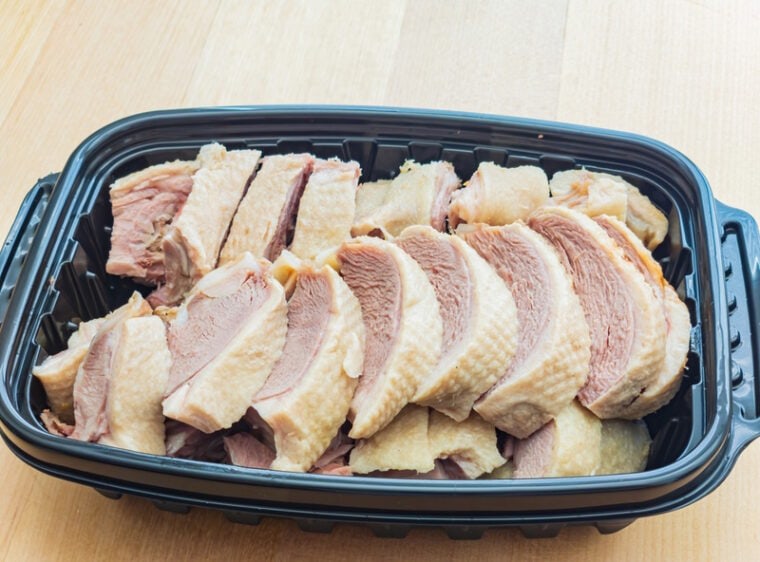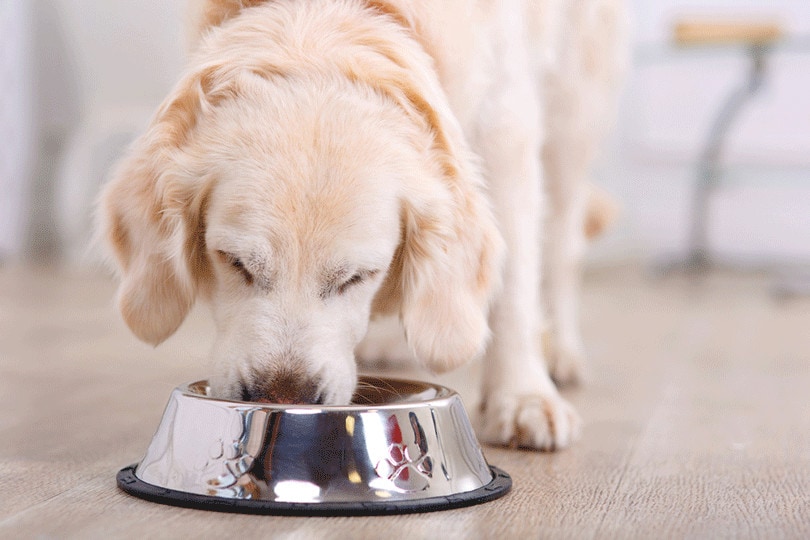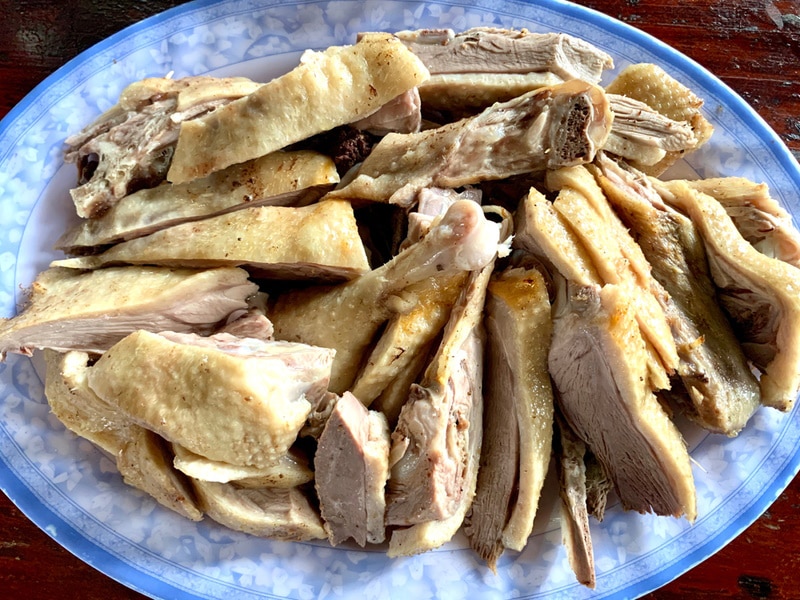
It’s hard to resist when your dog is begging for a scrap or two from your dinner plate. But before giving your pet any people food, you should be sure that it’s safe to do so. Plenty of our foods are absolutely fine to give your dog as a once in a while treat, but other foods can be dangerous to them. And some of our food is just downright unhealthy for our pups, so it’s best to avoid those.
What about duck? Can dogs eat it, and is it safe? Dogs can eat duck, though it needs to be prepared properly! Duck even offers your pet some nutritional benefits. Here’s everything you should know before feeding duck to your dog.

Health Benefits of Duck for Canines
Duck is chock-full of some pretty healthy stuff for our pups, but more than that, duck is an excellent alternate source of protein for dogs with food allergies.1 The most common food allergy in canines is to protein sources, such as beef and chicken, which can make finding a suitable dog food for pups with food allergies a challenge. However, duck isn’t a protein source our four-legged friends are often allergic to, so it’s a much safer option.
What else can duck offer your pet?2 Well, duck is an excellent source of lean protein, low in saturated fat, and more easily digested. That means fewer calories, less fat, and a reduced risk of an upset stomach, all while your dog gets the protein it needs.
Duck also provides your pup with many essential vitamins and minerals. For one, duck is high in both iron and calcium. It also contains quite a bit of selenium (which supports the thyroid) and phosphorus (required for healthy teeth and bones). Plus, duck has plenty of B vitamins to offer, which help convert carbs and fat to energy, so your pup can play all day. These vitamins also aid in keeping red blood cells working as they should.
Finally, duck contains many acids and antioxidants beneficial to your dog. Amino acids keep muscles strong, while omega-3 fatty acids help your dog’s coat and skin stay healthy. And antioxidants, such as zinc, provide a boost to your pet’s immune system, resulting in a healthier pup.
So, duck has a lot to offer your favorite canine companion! And there’s not much risk when giving duck to your pup—at least, as long as you prepare it correctly.

How to Feed Duck to Your Dog
To ensure your dog’s safety when feeding it duck, you need to make sure the duck has been safely prepared. First and foremost, you need to cook any duck you want to give to your pet! Your pup might enjoy raw duck immensely, but raw duck can contain bacteria, such as salmonella or E. coli, that will make your dog incredibly ill. Plus, uncooked meat is more difficult to digest than cooked, which could result in gastrointestinal issues. So, be sure you cook thoroughly (and forego the seasonings because they can also make your pet ill!).
Then there’s the issue of duck bones. Again, bones might be something your dog would simply love, but they aren’t good for your pet. ? Duck bones can splinter, snap, or fragment while your pup is chewing them. And those fragments can result in blockages in the gastrointestinal system or cut up your pet’s throat, mouth, tongue, and even intestines! So, avoiding bones entirely is the safest option.
Finally, don’t overdo it when you feed your dog duck. Duck might provide nutrients your pet needs, but it’s still a treat. So, stick with the 10% rule (treats for dogs should only make up 10% of their diets) when feeding your pet this food.
Though, if you think your dog might be better off eating duck as its primary protein instead of chicken or beef, there are dog foods available that contain duck and provide all the nutrition your pet needs.3


Final Thoughts
Feeding your dog a bit of duck here and there is perfectly safe and provides your pet with a tasty, nutritional treat. Duck offers your dog many dietary benefits, such as minerals, vitamins, and amino acids. Plus, duck is a fabulous alternate protein source for dogs with food allergies!
However, only feed your pet pieces of duck cooked without seasoning, and avoid letting your pup have duck bones. Raw duck can make your pet quite ill as it can contain harmful bacteria, while duck bones run the risk of splintering and causing damage to your dog’s mouth, throat, and gastrointestinal system. But as long as the duck is cooked plain and given sparingly, your dog should be fine and will be thrilled with its yummy treat!
Featured Image Credit: Kit Leong, Shutterstock




